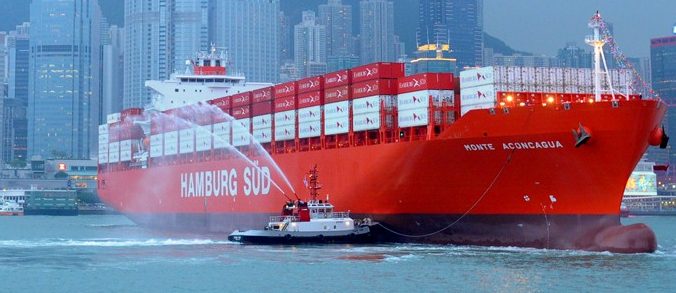Consolidation not enough to bring prosperity back to box shipping: AlixPartners

The outlook for global container carriers remains rocky at the outset of 2017, according to a new study by AlixPartners.
The report touched on Hanjin’s bankruptcy, Brexit and the new US president and questioned whether a growing protectionist mood around much of the world could reverse policies that have supported the growth of containerisation since the 1950s.
“The industry remains in the midst of major upheaval it’s experienced since the 2008 financial crisis. Carriers need to remain focused on eliminating costs from their core shipping business,” said Esben Christensen, managing director at AlixPartners. “While there has been good news recently in rates, the industry still needs to be prepared for continued struggles. The recent consolidation isn’t the cure all for the industry.”
As the shipping industry plows through the doldrums, companies have been searching for solutions to their financial problems. Companies have slimmed operating expenses and reduced capital expenditures, slashing them to $12.4bn in 2016 from $25.2bn in 2011. But those efforts may not go far enough, AlixPartners suggested. Nearly every key financial indicator has worsened from the previous year. Operational cash flow as a percentage of revenue slowed to an “anemic” 6% through the last 12-month period ended September 30, 2016, which is still outpaced by capital expenditures, the report pointed out. The industry’s total debt levels, driven by borrowing for M&A activity, have edged back up. Additionally, earnings before interest, taxes, and depreciation (EBIT) margins turned negative in Q3 2016 for the first time in the study’s sample period.
“This does not bode well for the 2017 calendar year, because the industry usually sees peak volumes during the third quarter,” the report warned.
The study says the global container shipping market will likely have a glut in capacity for the foreseeable future. Consolidation is only one way to help solve that problem, but it’s a solution that has been ignored until very recently.
“While the consolidation of the liner industry is considered a positive, it is by no means a panacea for the containership industry and certainly not for the tonnage providers,” said Albert Stein, managing director at AlixPartners. “Expect major upheavals in 2017 especially among Greek and German container shipowners, as they find a smaller, if any, market for their ships. All I see now is a move towards building and buying ship types for already overserviced routes which will generate returns that will just about disappoint everybody, particularly in a new global trade environment.”
The report outlined three priorities for carriers in 2017: focus on customer and route profitability, reduce operating costs, and rationalise fleets.
The AlixPartners study Container Shipping Outlook 2017 reviewed the financial results of the world’s 14 publicly-traded ocean container carriers. Data for 2017 in the study is based on the 12-month-prior period through September 30, 2016.
